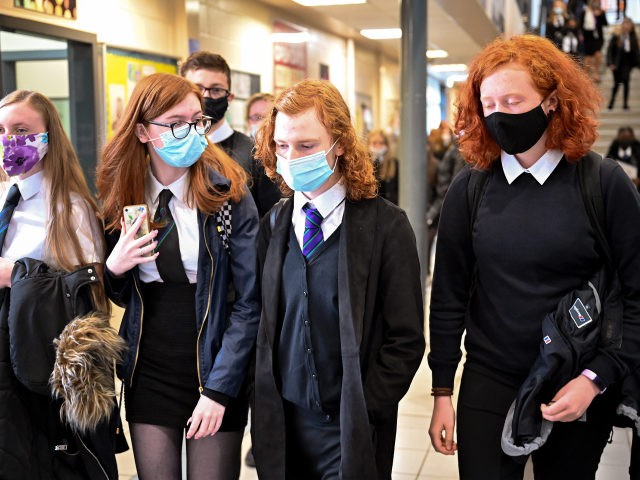The education secretary has backed schools taking the part of parents by teaching them “family dining” at lunchtime, including table manners and social skills.
Gavin Williamson came out in favour of schools continuing the bubble system, which saw pupils forced to stay in the same group every day for lunch, despite the easing of restrictions this week.
Alluding to children not habitually eating with their families at home, the minister suggested that teachers could take the place of parents and instruct youngsters on how to eat and talk at the lunch table, telling the Daily Mail: “Not all children will have that regular experience of being sat around a family dinner table. I think it’s an important part of their personal development and it supports… their educational development as well.”
The newspaper describes the scheme being where a teacher will often sit at the table, with each pupil given a task such as serving food and clearing up, as well as supervising and prompting children to have conversations with each other, effectively turning pupils’ limited free time in school into another lesson.
“It means bringing children together at lunchtime, making sure that they’re eating excellent healthy food, and [ensuring] that children actually understand what it’s like to be serving a meal for other children, and setting the table,” Mr Williamson said, adding that it could help discipline and behaviour at school.
It is not the first time Williamson has put his support behind the State taking more control over children’s time, acting as de facto parents, when he said in June that there was a “strong case” for longer school days, “not just in terms of the academic, but also in terms of the enrichment, as well”.
“There’s already many schools right across the country that deliver an expanded school day, but up until this point, we’ve not actually pushed it has hard as maybe we should have done,” Williamson had told the BBC.
Longer school days and shorter holidays were also proposed by the minister in March as a way for pupils in England to catch up on lessons missed when the government shut schools during the height of the pandemic.
However, polling in May found that two-thirds of parents were against schools extending the school day, with the Times Educational Supplement (TES) claiming at the time that the government had considered extending the school day to 8 am to 6 pm.
Academics from the University of Kent’s School of Psychology said in a blog post in February that longer school days do not equal more learning for children, and may even contribute to bad behaviour.
Research associate Dr Suzanne Cogswell said: “During the afternoon of a typical school day primary school pupils, some as young as five years old will already experience mental fatigue and failing attention, leading to a reduced ability to retain all the information that is being presented. Compounding this, over-tired pupils will display more low-level classroom disruption (LLCD), such as swinging on chairs, whispering to peers, and fidgeting.”
“Extending the school day, and the expectance of pupils to concentrate on academic learning for longer periods may result in the opposite effect to that desired. With an increase in overtired pupils and LLCD having the potential to reduce teaching and learning time,” Dr Cogswell said.
As if the State continuing to commandeer children’s lunchtimes post-lockdown was not enough, Mr Williamson also said on Monday that pupils should not get “too carried away with these new freedoms and throw caution to the wind” and that “school communities still need to follow Covid precautions, especially regular testing for pupils, families and staff.”

COMMENTS
Please let us know if you're having issues with commenting.